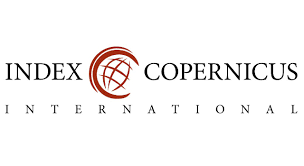Mediating Role of Socio-Religious Behavior to Changes in Selection of Imported Food Among Millennial Muslims
DOI:
https://doi.org/10.24090/ieibzawa.v1i1.864Keywords:
Religious; Millennial Muslims; Socio-religious behavior; Imported food; IndonesiaAbstract
The aim of this research is to reveal the influence of attitudes, subjective norms and perceived behavioral control on interest in purchasing imported food and beverage products labeled halal through religiosity as a moderating variable (Study of Generation Z, Bone Regency). The type of research used is explanatory research or explanatory research. The analysis technique used in this research is Partial Least Square (PLS) and the data is processed using SmartPLS software. This method is used as an alternative to variance-based SEM and has the advantage that this method can be estimated with a small number of samples. This research uses the help of SmartPLS software which was built with the aim of measuring variant-based structural equations. There are several steps that must be carried out in this method with the help of SmartPLS software. There are analysis stages using the Partial Least Square (PLS) method, namely: 1) Creating a model concept, 2) The specified algorithm analysis method, 3) The specified resampling method, 4) Drawing a path diagram, 5) Evaluating the model. The conclusions of this research: 1) Attitude has a positive and significant influence on interest in purchasing imported food and beverage products labeled halal; 2) Subjective norms have no effect on interest in purchasing imported food and beverage products labeled halal; 3) Perceived behavioral control has a positive and significant influence on interest in purchasing imported food and beverage products labeled halal; 4) Religiosity has a positive and significant influence on interest in purchasing imported food and beverage products labeled halal; 5) Religiosity does not moderate the influence of attitudes on intention to buy imported food and drinks labeled halal; 6) Religiosity does not moderate the influence of attitudes on intention to buy imported food and drinks labeled halal; 7) Religiosity does not moderate the influence of perceived behavioral control on interest in buying imported food and drinks labeled halal.
Keywords: Religious; Millennial Muslims; Socio-religious behavior; Imported food; Indonesia
Downloads
Published
How to Cite
Conference Proceedings Volume
Section
License
Copyright (c) 2023 Andi Wahda, Sitti Nikmah Marzuki, Jumarni

This work is licensed under a Creative Commons Attribution 4.0 International License.











